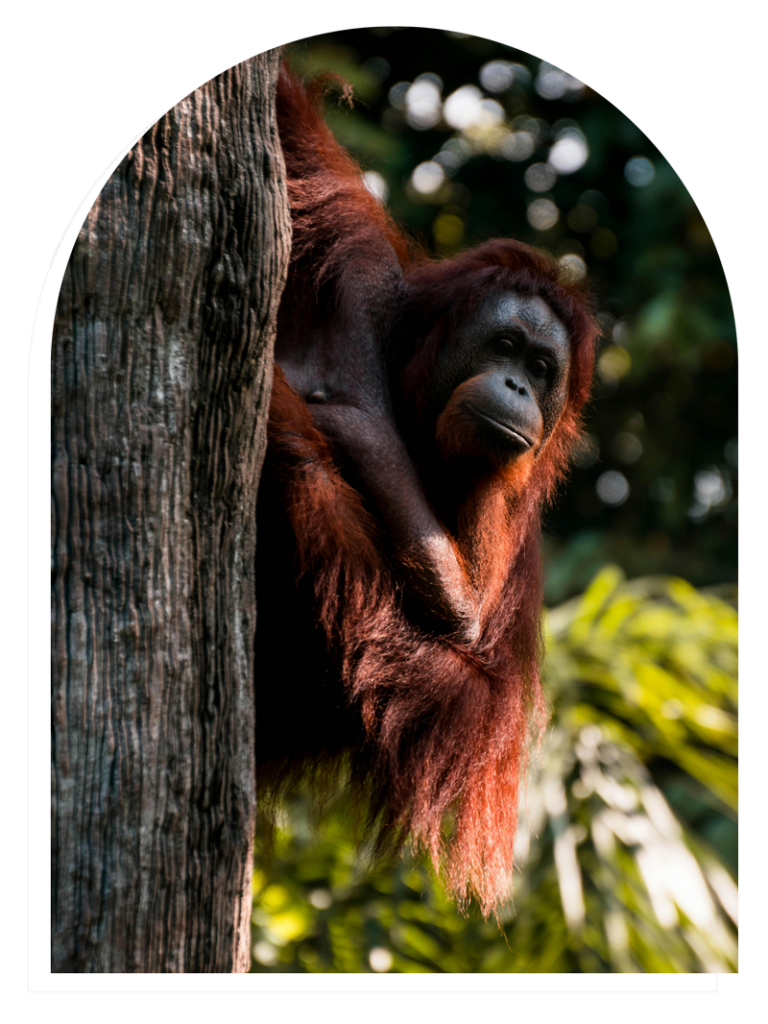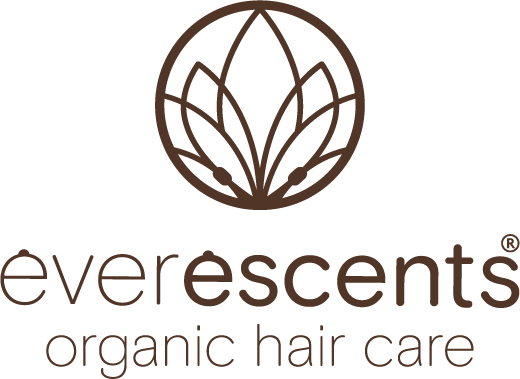
Say No to Palm Oil
EverEscents is very passionate about sustainability which is why we choose not to use ingredients that may be derived from Palm Oil wherever possible. EverEscents is committed to stay abreast of the Palm Oil issue and to support this EverEscents is a member of “The Orangutan Project” (TOP) and has been since 2011.
EverEscents has supported various fundraising efforts over the years to assist with the amazing work TOP is involved with in the effort to conserve the devastated areas of Indonesia and Malaysia due to Palm Oil harvesting and manufacturing.
EverEscents donates money to TOP each year to preserve 2 square kilometres of forest to be safeguarded against clearing. EverEscents also has adopted an orphaned Orangutan that has been saved from the devastated areas and is being cared for by TOP until it is safe to be reintroduced back into a safe habitat. Please take the time to check out The Orangutan Project and make a donation today at www.orangutan.org.au
Palm Oil History
Palm oil is a type of edible vegetable oil that is derived from the palm fruit, grown on the African oil palm tree. Oil palms are originally from Western Africa, but can flourish wherever heat and rainfall are abundant. Today, palm oil is grown throughout Africa, Asia, North America, and South America, with 85% of all palm oil globally produced and exported from Indonesia and Malaysia; but unfortunately most of the time this is not done using sustainable measures.
The industry is linked to major issues such as deforestation, habitat degradation, climate change, animal cruelty and indigenous rights abuses in the countries where it is produced, as the land and forests must be cleared for the development of the oil palm plantations. According to the World Wildlife Fund, an area the equivalent size of 300 football fields of rainforest is cleared each hour to make way for palm oil production. This large-scale deforestation is pushing many species to extinction, and findings show that if nothing changes species like the orangutan could become extinct in the wild within the next 5-10 years, and Sumatran tigers less than 3 years.

Palm Oil Ingredients & where EverEscent fits in
There are many different ingredients that MAY be derived from Palm Oil and there is a long list below. Of all of these ingredients there are only 3 that EverEscents uses in a few of it’s products; Glycerin Cetearyl Alcohol and Glyceryl Stearate.
Our Glycerin is Certified Organic and not derived from Palm Kernel Oil.
Cetearyl Alcohol is mainly derived from Coconut Oil however sometimes is derived from Palm Kernel Oil.
Glyceryl Stearate is also mainly derived from Coconut Oil however sometimes is derived from Palm Kernel Oil.
EverEscents sources these ingredients from a supplier that has a Palm Oil sustainability statement and only purchases Palm Oil from members of the Roundtable on Sustainable Palm Oil (RSPO). This Supplier has also stated that their goal is to source all palm and palm kernel oil from certified sustainable sources (CSPO).
The difference between RSPO & CSPO
Certified Sustainable Palm Oil (CSPO)
CSPO represents the certification process where palm oil growers must commit to real credible sustainability standards through time-bound plans. There is an increasing demand for palm oil that is sustainably certified in Europe and North America, including big names such as Walmart, Unilever and Nestle. As of 2011, CSPO represented over 10% of the global palm oil market but this has increased in recent years and is projected to increase in coming years. The certification process consists of reviewing existing production operations and identifying areas that must be improved to reach the CSPO standards to then be approved by a certification body. The standards are based on eight principles which have been retrieved from the RSPO website:
- Commitment to transparency
- Compliance with applicable laws and regulations
- Commitment to long-term economic and financial viability
- Use of appropriate best practices by growers and millers
- Environmental responsibility and conservation of natural resources and biodiversity
- Responsible consideration of employees and of individuals and communities affected by growers and mills
- Responsible development of new plantings
- Commitment to continuous improvement in key areas of activity Because of the varying levels of sustainability and commitment by stakeholders, multiple selling systems have been created to define where certified palm oil fits in one of three systems.
Roundtable on Sustainable Palm Oil (RSPO)
The RSPO is a multi-stakeholder organization that was founded in 2004 as a response to pressure from the negative attention the industry was getting for its environmental and social impacts. It was created by producers, civil society, governments and buyers to address these impacts and carries forth the vision to transform markets to make sustainable palm oil the norm. It consists of comprehensive production standard and certification system to prevent the aforementioned negative impacts and credibly present that information to end users. It comprises 558 members with one-third of these members representing consumer goods manufacturers but only 17% of them representing producers of the oil.
The Good: The RSPO is currently the best sustainability and social impact standard that exists around the palm oil industry. Additionally, it has been found to be very beneficial in the long run for stakeholders who have implemented the RSPO certification standard. Finally, because the RSPO is multi-stakeholder, it includes everyone involved in the chain of production from growers and producers through to retailers and buyers and then on to members of civil society and NGOs at the very end of the line.
The Bad: One of the main criticisms of the RSPO standard is that it still permits planting of palm oil on peatlands and cleared secondary forests. This is of great concern to environmental groups and NGOs because of the role peatlands play in storing the world’s carbon which is an ecosystem good that is completely lost following the destruction of these peatlands. Additionally, its general certification standard is often regarded as being weak and a result of the multi-stakeholder dynamic of the organization. Many varying views and opinions must be considered in moving forward with any decisions made by the RSPO, which has meant very little change in the last 10 years. This dynamic drastically slows down the pace of potential progress because the RSPO runs by consensus meaning the bar for change has to be set quite low to be accepted by all. While this progress continues on slowly as the rainforests of the world are cut down at increasing speeds, it is vital for this process to be based around multi-stakeholder consensus decision to allow all sides to move forward with a shared vision.
A-Z of Alternate names for Palm Oil
EverEscents strongly rejects the use of these ingredients and encourages all consumers to check the labels of their household products and avoid the following ingredients:
Acetic and fatty acid esters of glycerol (472a/E472a)
Alkyl Poly Glucoside
Aluminium stearate
Aluminium, calcium, sodium, magnesium salts of fatty acids (470/E470a; E470b)
Ammonium laureth sulphate
Ammonium lauryl sulphate
Arachamide mea
Ascorbyl palmitate
Ascorbyl palmitate (304)
Azelaic acid
Butyl stearate
Calcium lactylate
Calcium oleyl lactylate
Calcium stearate
Calcium stearoyl lactylate (482/E482)
Capric triglyceride
Caprylic acid
Caprylic / Capric Glycerides
Caprylic triglyceride
Caprylic/capric triglyceride
Caprylic/capric/stearic triglyceride
Capryloyl glycine
Caprylyl glycol
Carotene (Sometimes made from palm)
Castile soap (often from palm)
Ceteareth (2-100)
Cetearyl alcohol
Cetearyl ethylhexanote
Cetearyl glucoside
Cetearyl isononanoate
Ceteth-20
Ceteth-24
Cetyl acetate
Cetyl alcohol
Cetyl ethylhexanoate
Cetyl hydroxyethylcellulose
Cetyl lactate
Cetyl octanoate
Cetyl palmitate
Cetyl ricinoleate
Citric and fatty acid esters of glycerol (472c/E472c)
Cocoa butter equivalent (CBE)
Cocoa butter substitute (CBS)
Decyl Glucoside
Decyl oleate
Diacetyltartaric and fatty acid esters of glycerol (472e/E472e)
Dilinoleic acid
Disodium laureth sulfosuccinate
Disodium lauryl sulfosuccinate
Distilled Monoglyceride Palm
Elaeis guineensis oil
Emulsifier 422, 430-36, 470-8, 481-483, 493-5
Epoxidized palm oil (uv cured coatings)
Ethyl lauroyl arginate (243)
Ethylene glycol monostearate
Ethylhexyl hydroxystearate
Ethylhexyl Palminate
Ethylhexyl palmitate
Ethylhexyl stearate
Ethylhexylglycerin
Fatty alcohol sulphates
Glycerin
Glycerin or glycerol (442)
Glyceryl distearate
Glyceryl laurate
Glyceryl monostearate
Glyceryl myristate
Glyceryl oleate
Glyceryl polymethacrylate
Glyceryl Rosinate
Glyceryl stearate
Glyceryl stearate SE
Glycol distearate
Glycol stearate
Guineesis (palm)
Hexadecylic
Hexyl laurate
Hexyldecanol
Humectant glycerol
Hydrogenated palm glycerides
Isopropyl isostearate
Isopropyl palmitate
Isopropyl titanium triisostearate
Isostearamide DEA
Isostearate DEA
Isostearic acid
Isostearyl alcohol
Lactic and fatty acid easters of glycerol (472b/E472b)
Lauramide DEA
Lauramide MEA
Lauramine oxide
Laureth
Lauric acid
Lauroyl sarcosine
Lauryl betaine
Lauryl lactate
Lauryl glucoside (from palm)
Lauryl pyrrolidone
Linoleic acid
Magnesium myristate
Magnesium stearate
Mixed tartaric, acetic and fatty acid esters of glycerol (472f/E472f)
Mono-and- di-glycerides of fatty acids (471/E471)
Mono-glycerides of fatty acids
Myristate
Myristic acid
Myristic Cetrimonium Chloride Acid
Myristoyl
Myristyl alcohol
Myristyl myristate
Octyl palmitate
Octyl stearate
Octyldodecyl myristate
Octyldodecyl stearoyl stearate
Oleamide MIPA
Oleic acid
Oleyl betaine
Palm fruit oil
Palm kernel oil
Palm oil
Palm olein
Palm stearine
Palmate
Palmitate
Palmitic acid
Palmitamidopropyltrimonium chloride
Palmitoyl myristyl serinate
Palmitoyl oxostearamide
Palmitoyl oligopeptide
Palmitoyl tetrapeptide-3
PEG-100 stearate
PEG-15 stearyl ether
PEG-150 distearate
PEG-2 oleamine
PEG-20 stearate
PEG-4 laurate
PEG-40 stearate
PEG-8 distearate
PEG-8 stearate
PEG-80 sorbitan laurate
Pentaerythrityl tetraisostearate
Peptide complex
Polyethylene (40) stearate (431)
Polyglycerol esters of fatty acids (475/E475)
Polyglycerol esters of interesterified ricinoleic acid (476/E476)
Polyglycerol-2 oleyl ether
Polyglyceryl-3 dilisostearate
Polyglyceryl-4 isostearate
Polyglyceryl-4 oleyl ether
Polysorbate 60 or polyoxyethylene (20) sorbitan monostearate (435/E435)
Polysorbate 65 or polyoxyethylene (20) sorbitan tristearate (436/E436)
Polysorbate 80 or polyoxyethylene (20) sorbitan monoolate (433/E433)
Polysorbate-20
Polysorbate-40
Polysorbate-80
Polysorbate-85
Potassium stearate
PPG-15 stearate ether
Propylene glycol esters of fatty acids (477/E477)
Propylene glycol laurate
Propylene glycol stearate
Retinyl palmitate
Saponified elaeis guineensis
Sleareth
SLES
SLS
Sodium cetearyl sulphate
Sodium Dodecyl Sulphate (SDS or NaDS)
Sodium Isostearoyl Lactylaye
Sodium lactylate; sodium oleyl lactylate; sodium stearoyl lactylate (481/E481)
Sodium laurate
Sodium laurel
Sodium laureth sulfate
Sodium laureth sulphate
Sodium laureth-13 carboxylate
Sodium lauroyl lactylate
Sodium lauryl
Sodium lauryl ether sulphate
Sodium lauryl glucose carboxylate
Sodium lauryl sulfate
Sodium lauryl sulfoacetate
Sodium lauryl sulphate
Sodium palm kernelate
Sodium palmate
Sodium palmitate
Sodium stearate
Sodium stearoyl lactylate
Sorbitan isotearate
Sorbitan laurate
Sorbitan monostearate (491)
Sorbitan oleate
Sorbitan palmitate
Sorbitan sesquioleate
Sorbitan trioleate
Sorbitan tristearate
Sorbitan tristearate (492)
Stearalkonium chloride
Stearalkonium hectorite
Stearamide MEA
Stearamidopropyl dimethylamine
Steareth-10
Steareth-2
Steareth-20
Steareth-21
Stearic acid (vegetable oil)
Stearic acid or fatty acid (570)
Stearoyl sarcosine
Stearyl alcohol
Stearyl dimethicone
Stearyl heptanoate
Sucrose stearate
Sucroseesters of fatty acids (473/E473)
Taxanomic
TEA-lauryl sulphate
TEA-stearate
Tocopheryl linoleate
Triacetin
Triacetin (1518)
Tribehenin
Tricaprylin
Tristearin
Vegetable glycerin
Vegetable Oil
Zinc stearate


You must be logged in to post a comment.